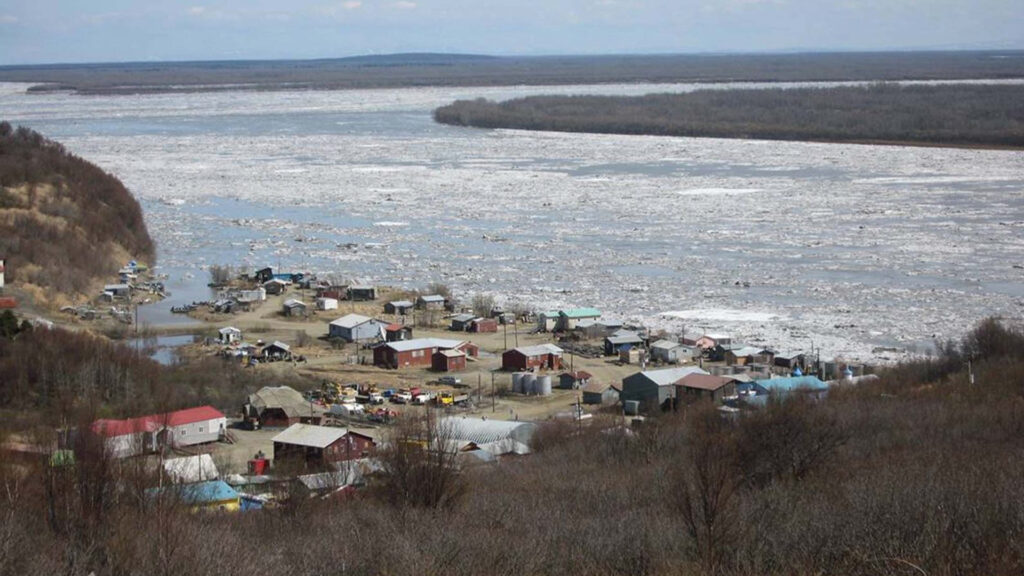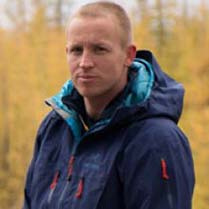By Patty Cox, Florida State University
A Florida State University scientist has helped uncover through a multidecadal study how changing water chemistry in Arctic rivers could impact the entire planet.

New research published in Nature Geoscience by FSU Earth, Ocean & Atmospheric Science Professor Robert Spencer and a multinational team delves into how rivers in the Arctic are responding to the warming climate, how the region’s chemistry is shifting due to climate change and other natural processes, and how these changes are influencing the intricate web of life both on land and in the oceans.
“The Arctic is warming faster than anywhere else on Earth, and this is leading to a host of changes from permafrost thaw mobilizing long-stored carbon, to shifts in vegetation, processing of nutrients and carbon in rivers,” said Spencer, who travels the world conducting research gauging the impacts of humans on Earth’s chemical cycles. “All of this is reflected in water samples we take from these major Arctic rivers. Working in numerous countries across the Arctic allows us to observe clear patterns across the whole region from sites in this study in the United States, Canada and Russia.”
The research, conducted by scientists from the National Science Foundation-funded Arctic Great Rivers Observatory over a nearly two-decade period from 2003 to 2019, is akin to a checkup of the ecological health of the region. The survey focused on the Ob’, Yenisey, Mackenzie, Lena, Kolyma and Yukon rivers, crucial connectors between the vast Arctic lands and the sea.
The chemicals the rivers carry reveal what’s happening in their watersheds, much like a blood test taken from a patient by a medical doctor.
The study took a close look at the chemical makeup of these rivers by examining a suite of diagnostic parameters, including dissolved organic carbon, alkalinity and nitrate. The researchers found that some key players in this chemical story are changing:
- Alkalinity, which can reveal how rocks weather and break down and affect the water’s acidity, increased. This means that there is more weathering in the watersheds.
- Nitrate, a nutrient for plants and animals, declined, which could affect the balance of life in the oceans connected to these rivers.
- Dissolved organic carbon, a complex mixture, akin to a tea produced mainly from the land that rivers transport, didn’t show any major changes.

Changes in river chemistry hold implications for the entire planet, Spencer said. Alterations in the chemical makeup of these rivers could ripple through the entire ocean system. The changes in the rivers can affect how much carbon dioxide goes into the air and how plants and animals grow in the ocean.
In response, scientists are banding together to study these river dynamics more closely. By decoding the chemical messages of the Arctic rivers, they hope to further improve their understanding of the region’s rapidly changing ecosystem.
“Long-term projects across international boundaries like this are really required for us to understand not just how the Arctic is changing but also the rate of change,” Spencer said. “Having almost two decades worth of observations has given this multinational group unparalleled insights into these changes and the trajectory for the future.
“It really is an honor to be part of such a project, working with fantastic colleagues all around the world,” he said. “When science works across boundaries it benefits us all with an improved understanding of the world around us.”
This piece was originally published at https://news.fsu.edu/news/science-technology/2023/08/22/florida-state-university-earth-scientist-reveals-how-the-arctic-is-changing/
Sign up for The Invading Sea newsletter by visiting here. If you are interested in submitting an opinion piece to The Invading Sea, email Editor Nathan Crabbe at ncrabbe@fau.edu.



